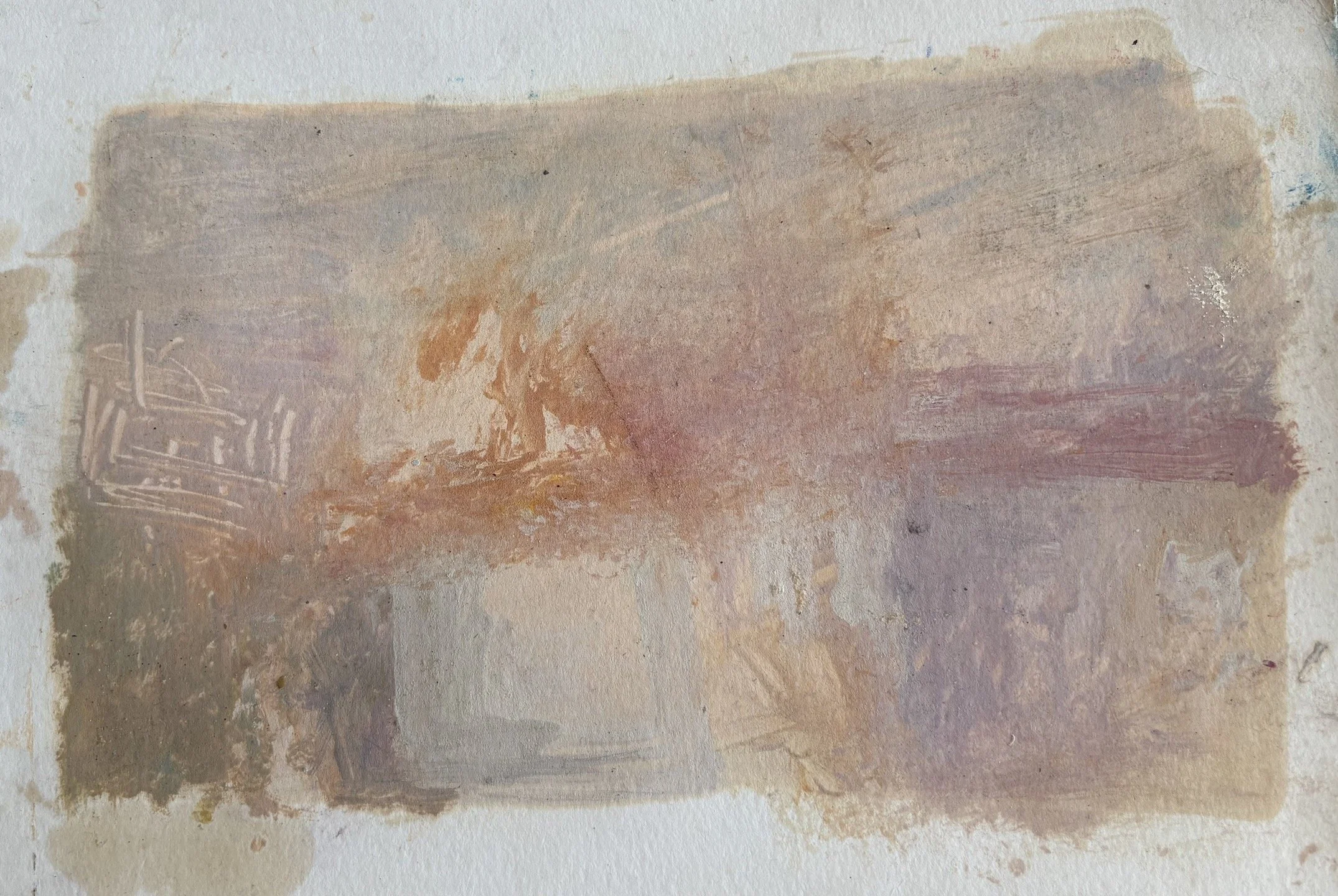Revealing Your Creative Vision
When I teach painting in oil or watercolor, I like to begin with a short meditation, to breathe and let go. As a relatively simple exercise, it can actually be daunting to directly face thoughts that are often running through the mind, that go unnoticed during our day on autopilot. I find meditation a powerful tool, particularly from my own experience, for quieting the mind and gaining more clarity on thoughts, perfectionism, and self-judgement. It allows the authentic self to emerge, the part of us that just wants to play, to sing, or dance without fear of failure.
Abstract painting gives voice to that calling through visual expression. It’s a way to let go and paint the feelings that arise in the moment. Unlike representational painting, where the goal is to capture a certain likeness in a given subject, abstract work invites us to take a step back and see things with a new lens, to project our feelings onto a canvas. This happens through gesture, free-flowing movement, building of texture through impasto techniques, and experimenting with various color relationships with no expectations.
Summer Evening, Ink on paper
The practice of abstract painting is a discipline that requires trust, and the more trust there is, a willingness prevails without hesitation. When we don’t have to think about how something is supposed to be done, but rather let the natural inclination of creativity prevail, then true creative freedom has been reached. This is closly related to the term “flow state”, coined by the Hungarian-American psychologist Mihaly Csikszentmihalyi. It can also be described as “optimal experience”, the total immersion and deep focus in any activity.
The freedom that is generated through abstract painting doesn’t exist apart from representational art—it can actually deepen it. For example, when painting a landscape, an abstract sensibility might guide the way you soften the edges of foliage, layer colors for atmospheric effects, or build thick textures to accentuate the boldness of a tree trunk, bringing it to life. Abstract painting teaches us to trust our intuition, which naturally enhances other representational approaches. Ironically, a landscape can become very abstract depending on the degree of expressiveness that is brought to the painting.
Ultimately, whether you’re painting abstractly or representationally or even conceptually, utilizing mindfulness while stepping out of the “comfort zone” will only reveal more of your true nature. So permit yourself to make “mistakes” and have fun, to lose control, to wander in foreign places, and be the person that was always there to begin with. You never know what beauty may be found right around the corner.
If you’re looking for techniques to help with expressing yourself more, consider enrolling in my fall abstract painting class starting September 18th. More info. can be found here, but please feel free to email me with any questions.
https://www.christopherdreed.com/group-classes/p/abstract-oil-painting-beginner-advanced-online-tuesdays-1022-1119
